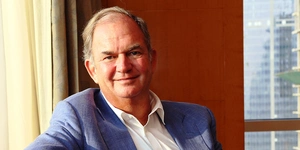Circa 1977: Cult band Bee Gees gave the world one of their most memorable compositions – Stayin’ Alive – a song that seems almost prophetic in the current times.
Whether you're a brother or whether you're a mother
You're stayin' alive, stayin' alive
Feel the city breakin' and everybody shakin'
And we're stayin' alive, stayin' alive
We are in the middle of a lockdown that doesn’t have a specific end date, and while the lockdown both in India and across the world, has been the right thing to do for collective good, it certainly has not been easy. Although relatively less severe than the alternative, there is already a price being paid for the safety that the lockdown envisions, in economic, social and psychological terms. And the question on everyone’s mind is: how much, how deep, and for how long? What comes next is anyone’s guess and we are compelled to live almost by the day.
But the good news is that while the current times are unprecedented, they are not insurmountable in the grand scheme of things.
For us to survive and come through on the other side of this as strong or even stronger than before, I believe it is imperative that we assume that the post-COVID world will be a different one. Seeing large communities, powerful nations, corporations and leaders brought to their knees by a microbe will have far-reaching impact on our collective consciousness. As individuals, what we value, what we prioritise and what or who we associate with, will all change forever. Ergo, brands will need to rethink their relationship with their consumers.
Trust
The biggest mistake a brand can make is to assume that consumers will pick up their relationships with brands where they left off (before the lockdown). The pandemic has put to test our fundamental notions of trust, so brands and organisations will have to work harder to earn it in a new world. With the ideas of transparency and safety now bundled into this idea (of trust) more than even before, organisations must consider what they need to do in order to be worthy again. So, hitherto loved and trusted brands should consider what they can and must do to be more trusted and more loved than before, lest they find that the goalpost has suddenly shifted. Equally important is how genuine brands are in their efforts. I have long believed that organisational values and behaviours communicate themselves over time to consumers, and if the brand is not thinking actively about regaining trust, there is danger of being perceived as tone deaf or worse, disinterested.
Compassion
Seldom associated with profitable corporations, compassion and solidarity with communities must be put at the heart of all operations by brands serious about earning long-term trust and loyalty of consumers. The pandemic will have polarised public opinion against companies or brands that were seen as opportunistic or insensitive during this time, and in favour of those that demonstrated greater empathy in the eyes of those affected by the pandemic. Research shows that doing good deeds enhances brand value, and moving forward, this will become even more important. More compassionate brands are likely to eventually be the ones first off the shelves in the longer term. Yes, in the AI and ML world, EQ will suddenly take centerstage. Again.
Relevance
Will companies that advocate use of non-tactile solutions such as retinal scan-based identity solutions, find more takers than those manufacturing fingerprint-based solutions? Will everyday computing become more and more voice assistant based? Are videoconferencing solutions going to become more popular than voice-only systems? In March 2020, Nielsen predicted that ‘crisis buying patterns during the outbreak will speed adoption of a new, permanent behaviour change, in the phase it called living a new normal.’ Several reports are already suggesting that with consumers becoming more comfortable with online buying, e-commerce is likely to see an uptick. What will companies that relied more on brick and mortar need to do to stay relevant and therefore growing?
The real issue is that the six weeks (or more) of lockdown in India will have shown us new ways of working and living that we had never considered before. It is certainly possible that many of us will feel better off with these new ways and ideas and will adopt new work styles and lifestyles. As a result, brands are likely to be placed differently in the hierarchy of needs in the post COVID-19 world.
After the initial few weeks of euphoric celebration of a life back to ‘normal’ - where consumer behaviour will be erratic and extreme – there will come a plateau of realism. In the new reality, the consumer will have different needs. Brands will be expected to reflect and reinvent themselves in order to belong to this new world where safety will be redefined, as will be transparency, honesty and purpose.
But the good news is, we still have some time. Time for us to revisit who we are as people and as organisations, time to evaluate who we want to be to each other and most importantly, to course correct.
After all, be it the ice age, the world wars or this pandemic, the fight has always been for Stayin’ Alive.
Views are personal.
The author is managing director, India Subcontinent, Pizza Hut.










Leave a Comment
Your email address will not be published. Required field are marked*